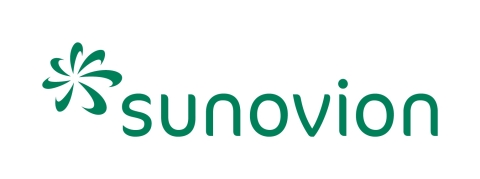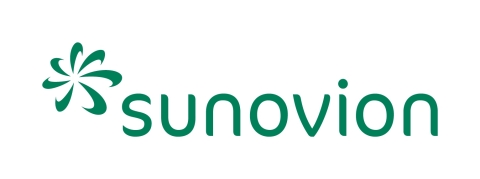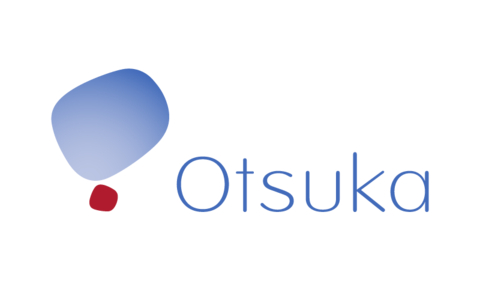MARLBOROUGH, Mass. & PRINCETON, N.J.--(BUSINESS WIRE)--Sunovion Pharmaceuticals Inc. (Sunovion) and Otsuka Pharmaceutical Development & Commercialization, Inc. (Otsuka) today announced that the first patient has been randomized in SEP380-301, a Phase 3 clinical study evaluating non-racemic amisulpride (SEP-4199) for the treatment of major depressive episodes associated with bipolar I disorder (bipolar depression). Non-racemic amisulpride is being jointly developed and commercialized as part of a collaboration between Sunovion, its parent company Sumitomo Dainippon Pharma and Otsuka Pharmaceutical Co., Ltd.
SEP380-301, named RELEASE 1 (NCT05169710), is a six-week, global, multicenter, randomized, double-blind, placebo-controlled, parallel-group study examining the efficacy, safety and tolerability of non-racemic amisulpride in adults with bipolar depression. Patients will be randomized to receive fixed-dose, non-racemic amisulpride (200 or 400 mg/day) or placebo. The primary endpoint for RELEASE 1 is the reduction of depressive symptoms, as measured by the change from baseline in Montgomery-Åsberg Depression Rating Scale (MADRS) total score, compared to placebo, after six weeks of treatment. Following participation in the six-week study period, patients who complete RELEASE 1 may enroll in RELEASE 3 (SEP380-303; NCT05227209), a 12-month, open-label extension study assessing the long-term safety, tolerability and effectiveness of non-racemic amisulpride.
“Major depressive episodes associated with bipolar I disorder have a profound impact on those living with the condition. Depressive episodes are associated with mood impairment, fatigue, loss of interest in activities or social situations and, in some cases, suicidality,” said Armin Szegedi, M.D., Ph.D., Senior Vice President, Chief Medical Officer at Sunovion. “We are encouraged by our Phase 2 clinical results and look forward to enhancing our understanding of non-racemic amisulpride and its potential to help address unmet needs in the treatment of bipolar depression.”
“Randomizing the first patient in the RELEASE Phase 3 clinical development program is a significant step in our collaboration with Sunovion and our shared goal of expanding neuropsychiatric treatment options to patients living with serious mental conditions,” said John Kraus, M.D., Ph.D., Vice President, Clinical Development Therapeutic Head, CNS, Otsuka Pharmaceutical Development & Commercialization, Inc. “Through our collaboration with Sunovion, we hope to advance SEP-4199, which we believe shows promise for the treatment of people with bipolar depression.”
About Non-Racemic Amisulpride (SEP-4199)
Non-racemic amisulpride (85:15 ratio of aramisulpride to esamisulpride; SEP-4199) is in Phase 3 clinical development for the treatment of major depressive episodes associated with bipolar I disorder (bipolar depression). Non-racemic amisulpride was designed to enhance 5-HT7 receptor antagonist activity and reduce dopamine D2 receptor antagonist activity compared to racemic amisulpride. Lower D2 receptor occupancy associated with non-racemic amisulpride is intended to maintain overall effectiveness for patients with mood disorders, including bipolar depression, while reducing the burden of D2-related side effects, including movement-related symptoms, such as extrapyramidal symptoms (stiffness, rigidity and tremor) and akathisia (restlessness).1
About Bipolar Disorder
Bipolar disorder affects approximately 12.6 million individuals in the United States and an estimated 29 million people worldwide.2,3 A person is usually diagnosed with bipolar disorder after experiencing at least one manic/hypomanic episode, with symptoms that are not better explained by another mental health condition, such as schizophrenia.4 Bipolar disorder is characterized by debilitating mood swings, interspersed with periods of stable mood and behavior.5 When individuals with bipolar disorder are experiencing symptoms, most tend to be depressed rather than manic.4 Bipolar disorder is associated with significant impairment in personal and professional relationships, quality of life and ability to function.6
About Sunovion Pharmaceuticals Inc. (Sunovion)
Sunovion is a global biopharmaceutical company focused on the innovative application of science and medicine to help people with serious medical conditions. Sunovion’s vision is to lead the way to a healthier world. The company’s spirit of innovation is driven by the conviction that scientific excellence paired with meaningful advocacy and relevant education can improve lives. With patients at the center of everything it does, Sunovion has charted new paths to life-transforming treatments that reflect ongoing investments in research and development and an unwavering commitment to support people with psychiatric, neurological and respiratory conditions.
Headquartered in Marlborough, Mass., Sunovion is an indirect, wholly-owned subsidiary of Sumitomo Dainippon Pharma Co., Ltd. Sunovion Pharmaceuticals Canada Inc., based in Mississauga, Ontario, is a wholly-owned direct subsidiary of Sunovion Pharmaceuticals Inc. Additional information can be found on the company’s websites: www.sunovion.com and www.sunovion.ca. Connect with Sunovion on Twitter, LinkedIn, Facebook and YouTube.
About Otsuka
Otsuka Pharmaceutical Co., Ltd. is a global healthcare company with the corporate philosophy: “Otsuka–people creating new products for better health worldwide.” Otsuka researches, develops, manufactures, and markets innovative products, with a focus on pharmaceutical products to meet unmet medical needs and nutraceutical products for the maintenance of everyday health.
In pharmaceuticals, Otsuka is a leader in the challenging areas of mental, renal, and cardiovascular health and has additional research programs in oncology and on several under-addressed diseases including tuberculosis, a significant global public health issue. These commitments illustrate how Otsuka is a “big venture” company at heart, applying a youthful spirit of creativity in everything it does. Otsuka established a presence in the U.S. in 1973 and today its U.S. affiliates include Otsuka Pharmaceutical Development & Commercialization, Inc. (OPDC) and Otsuka America Pharmaceutical, Inc. (OAPI). These two companies’ 1,700 employees in the U.S. develop and commercialize medicines in the areas of mental health, nephrology, and cardiology, using cutting-edge technology to address unmet healthcare needs.
OPDC and OAPI are indirect subsidiaries of Otsuka Pharmaceutical Company, Ltd., which is a subsidiary of Otsuka Holdings Co., Ltd. headquartered in Tokyo, Japan. The Otsuka group of companies employed 47,000 people worldwide and had consolidated sales of approximately USD 13.3 billion in 2020.
All Otsuka stories start by taking the road less traveled. Learn more about Otsuka in the U.S. at www.otsuka-us.com and connect with us on LinkedIn and Twitter at @OtsukaUS. Otsuka Pharmaceutical Co., Ltd.’s global website is accessible at www.otsuka.co.jp/en/.
About Sumitomo Dainippon Pharma Co., Ltd.
Sumitomo Dainippon Pharma is among the top-10 listed pharmaceutical companies in Japan, operating globally in major pharmaceutical markets, including Japan, the U.S., China, and other Asian countries. Sumitomo Dainippon Pharma aims to create innovative pharmaceutical products in the Psychiatry & Neurology area, the Oncology area and Regenerative medicine/Cell therapy field, which have been designated as the focus therapeutic areas. Sumitomo Dainippon Pharma is based on the merger in 2005 between Dainippon Pharmaceutical Co., Ltd., and Sumitomo Pharmaceuticals Co., Ltd. Today, Sumitomo Dainippon Pharma has more than 7,000 employees worldwide. Additional information about Sumitomo Dainippon Pharma is available through its corporate website at https://www.ds-pharma.com.
SUNOVION is a registered trademark of Sumitomo Dainippon Pharma Co., Ltd.
Sunovion Pharmaceuticals Inc. is a U.S. subsidiary of Sumitomo Dainippon Pharma Co., Ltd.
© 2022 Sunovion Pharmaceuticals Inc. All rights reserved.
For a copy of this release, visit Sunovion’s website at www.sunovion.com and Otsuka’s website at www.otsuka-us.com.
References
1 Hopkins SC, et al. Clin Pharmacol Ther. 2021;110(3): 808-815.
2 National Institute of Mental Health. Bipolar Disorder. [Internet]. Accessed March 17, 2016.
3 Swann A.C. Long-term treatment in bipolar disorder. J Clin Psychiatry. 2005; 66(1):7–12.
4 “Bipolar Disorder.” Decision Resources. Table 2-2. Burlington, MA. December 2013.
5 National Alliance on Mental Illness. The Impact and Cost of Mental Illness: The Case of Bipolar Disorder. [Internet]. Accessed March 17, 2016.
6 The Depression and Bipolar Support Alliance. Mood Disorders and Different Kinds of Depression. [Internet]. Accessed March 17, 2016.





